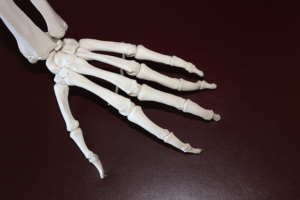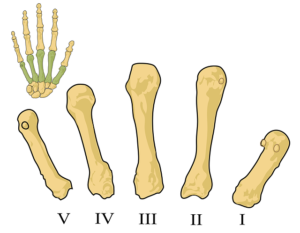The Battle Against Rheumatoid Arthritis Progression – WebMD
Rheumatoid arthritis (RA) is a chronic inflammatory condition. It’s an autoimmune disorder, meaning your body attacks its own tissues. It especially affects the lining of your joints. RA can first appear at any age, though it is most common in your 40s, 50s, or 60s.
Because it is a progressive condition, meaning it causes more damage to your body over time, it’s important to get treatment for RA right away. Alireza Meysami, MD, is the division head of rheumatology at the Henry Ford …….
Rheumatoid arthritis (RA) is a chronic inflammatory condition. It’s an autoimmune disorder, meaning your body attacks its own tissues. It especially affects the lining of your joints. RA can first appear at any age, though it is most common in your 40s, 50s, or 60s.
Because it is a progressive condition, meaning it causes more damage to your body over time, it’s important to get treatment for RA right away. Alireza Meysami, MD, is the division head of rheumatology at the Henry Ford Health System in Detroit. “When the whole thing starts, the train has left the station,” he says. “The sooner we can treat these patients, the better we can control the symptoms and the progression of the disease.”
There is no cure for RA, but there are ways to slow it down.
Watch for Increasing Symptoms
The RA hallmarks, Meysami says, are a combination of low energy, prolonged stiffness in the morning, joint pain, and swelling. This can range from mild to severe, depending on the person.
When you first start getting RA symptoms, they tend to be in the joints of your fingers and toes, especially where they connect to your hands or feet. As time goes on, pain and swelling often spreads to your wrists, knees, ankles, elbows, hips, shoulders, neck, or back.
The inflammation makes some people feel extremely tired or fatigued. “The body is in war,” Meysami says. “The inflammation uses up all their energy.”
In addition to your joints, some people also start having pain or problems with other areas. If you start getting more frequent eye infections, for example, this could actually be inflammation.
You might also see issues arise with your:
- Skin
- Lungs
- Heart
- Kidneys
- Salivary glands
- Nerve tissue
- Bone marrow
- Blood vessels
- Chest muscles
- Tendons
If your RA is more advanced, you may feel pain from damage that was already done before you started treatment. This can make it hard to distinguish new pain from old. “The damage to that bone could have been done 20 years ago,” Meysami says. “When that happens, it’s going to always be painful” without the right pain management.
See a rheumatologist to help you track your inflammation and stop it from getting worse. “For people who have rheumatoid arthritis, it’s really important for them to learn their specific patterns and to listen to their bodies,” says Amanda Sammut, MD, the chief of rheumatology at Harlem Hospital Center in New York City. “The earlier the symptoms are addressed, …….
Source: https://www.webmd.com/rheumatoid-arthritis/features/slow-ra-progression







